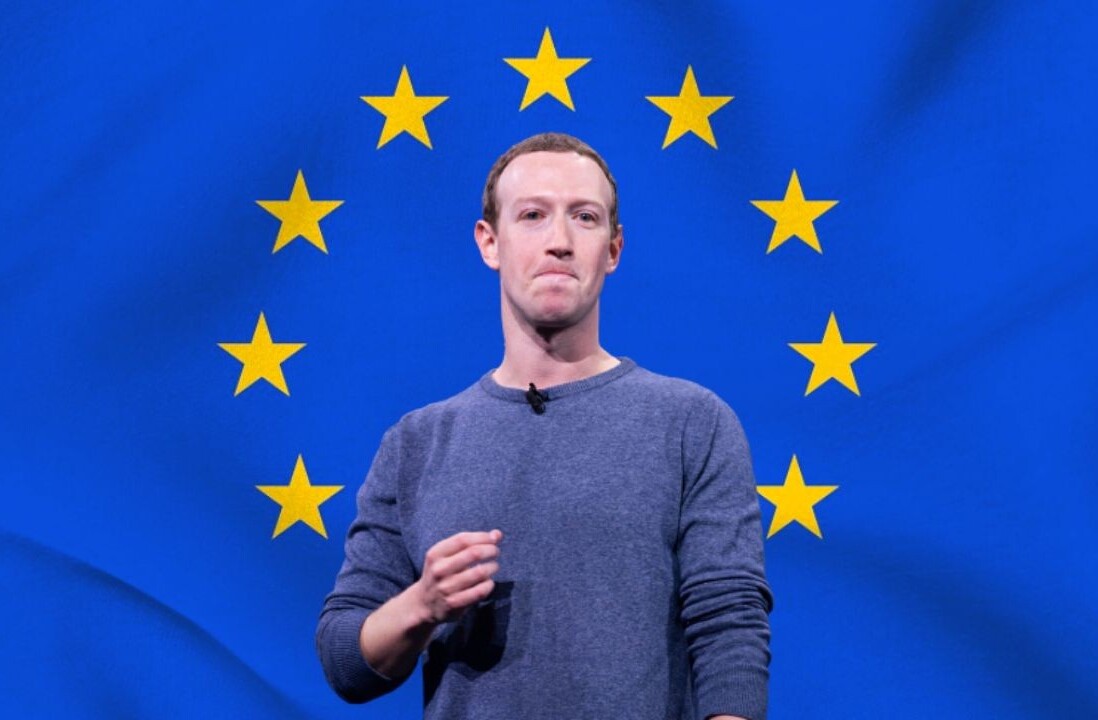
“For the first time ever, in a single day, we had half-a-billion people use Facebook. Half-a-billion people.”
-Mark Zuckerberg, 22nd September 2011.
At Facebook’s f8 Conference in September, founder Mark Zuckerberg’s revelation that half-a-billion people had accessed the service in a single day came as big news. While ‘Zuck’ could be forgiven if he was to dust his hands together, lean back on his leather recliner and watch his social network snowball its way to world domination, he’s not one to rest on his laurels. He wants more.
When he launched the early versions of Facebook to the Harvard masses eight years ago, even Zuck would probably admit that he didn’t see the platform taking off in the way that it has. But as we approach the end of 2011, Facebook can reflect on a year of tantalizing developments which should lead it nicely into its predicted $100bn IPO in early 2012.
At the f8 Conference, Facebook unveiled features such as Timeline, which it calls the ‘story of your life.’ It contains three main components: ‘All your stories, all your apps, and a new way to express who you are.’ It was finally launched globally last week, letting users’ record their whole lives for posterity.
Back in January, I predicted that Facebook would probably hit a billion users in 2011. But at the f8 Conference, Facebook announced 800m active users, so my prediction isn’t likely to come to fruition by year-end. However, the magic billion milestone is within Zuck’s grasp, and we can probably expect it to happen some time in the first quarter of 2012. When you get to a certain size, however, the numbers really start to become irrelevant. I mean, what’s a couple of hundred million between friends?
In the face of its imminent IPO, the biggest challenge for Facebook moving forward will be to stay fresh, agile and continue to blaze a trail in the social sphere. And it’s this question of innovation that we’re looking to explore here. Is Facebook innovative? Moreover, how can it continue to innovate into the future as it grows?
To answer this question, it’s perhaps worth exploring exactly what it means to be innovative.
Innovation isn’t original by definition
Here’s a myth-busting mantra for you: Innovation isn’t ‘original’ by definition. The word ‘innovation’ originates from the Latin term innovationem which – through a number of variations – comes from innovare. And according to the Online Etymology Dictionary, innovare means “to renew or change”.
That’s not to say innovation doesn’t draw on original thoughts, ideas and processes though. But in the context of Facebook, it’s important to acknowledge how it came to be and how it evolved.
Would you agree that Sir Isaac Newton was somewhat of a genius? Newton was a master of many trades. He described the law of universal gravitation and the three laws of motion. He also built the first practical reflecting telescope. Newton was a true innovator, but as he said himself: “If I have seen further it is only by standing on the shoulders of giants”. He acknowledged that his work was possible only because of other geniuses and innovators before him. Were the Beatles innovators within music? Of course they were. But they too stood on the shoulders of the giants of music before them.
Now, with the digital revolution in full-swing, we can see how the biggest technology giants have innovated upon existing ideas. Google wasn’t the first search engine – think Lycos, AltaVista, Yahoo and many more. Was Facebook the first social network? Nope. Think MySpace, Friendster and Bebo, to name a few.
‘If you snooze, you lose‘. There is certainly an element of truth in the notion that you have to be early to an idea to really innovate. However, the world has to be ready for it – if it’s unveiled too early, it may fail to get traction and others will pounce when the time is right, learning from the mistakes of the original innovators.
With that in mind, it’s probably fair to say that succeeding with any venture relies on three key components: innovation, execution and timing. Many of the modern-day digital Dalai Lamas talk about the role that luck played in their success, and for Mark Zuckerberg his luck came in the form of being in the right place at the right time. The world was ready for a global social network, but he had to ease them in gently.
Facebook…still a startup?

The rights and wrongs of Facebook’s approaches in these respects are debates for another day. But in the social network’s defence, it didn’t really have the benefit of peers in the same space to learn from, letting them say ‘THAT’S how we should be doing things’. It has been very much trial and error, but by and large, you’d have to agree it has gotten things right from a business-building perspective. 800m people speaks for itself.
The way that Mark Zuckerberg has iterated the Facebook model, from what was once a glorified ‘Hot or Not‘ website for Harvard students, through to a social network for friends and into a profit-making platform for business, really is remarkable. It could have fallen flat on its face at any stage, but it didn’t.
Facebook is scaling and evolving all the time, and this is a key point. Facebook may have launched in 2004, but it is still finding its feet. Without much in the way of precedent, Facebook is writing the rulebook for what a “revenue-generating social network for businesses and brands” actually means.
Although the word ‘startup’ alludes to a company that has recently ‘started up’, the word – in my mind – describes more of a mindset, a culture and a business model. It may be semantics, and it may be subjective, but Facebook is a startup.
What if…
I’ve often pondered what would have become of Facebook if it had been acquired by Yahoo back in 2006.
I posit that in a Yahoo-owned world, Facebook would have ceased to be a startup, much like YouTube was no longer a startup when Google took control. Zuckerberg would’ve been filthy rich, but he would have struggled to work under the watchful eye of a bigger company. He would’ve stuck at it for a bit, then walked away to become an investor or launch another social startup.
As Zuck watched Yahoo shrug its shoulders wondering how on Earth it would monetize the social behemoth, he would’ve regretted selling Facebook.
All is well though. Mark Zuckerberg didn’t sell Facebook, because he wasn’t motivated by money. He was motivated by building things and transforming his creation into an omnipresent subsection of the World Wide Web, and this is a key factor when considering Facebook from an innovation standpoint; all the top innovators are driven by a desire to build things that change the world, not by dollar signs.
I speak to a lot of startups, and it irks me just a little when I hear founders talking about being acquired before they’ve actually achieved anything. Why not build things for the love of building things? That’s infinitely more likely to bring success than the lure of cash. And that’s partly why Zuckerberg – and by default, Facebook – is innovative.
Zuck, the builder
Of course, a number of companies subsequently tried to acquire Facebook, but it seems that once the Yahoo rejection was done and dusted, it became a lot easier to refuse the money.
“The hardest one was when Yahoo offered us a billion dollars”, said Zuckerberg during the BBC’s Inside Facebook documentary broadcast in early December. “That was the first really big offer. At the time, I knew nothing about business really, I knew nothing about what a company would be worth. I had to make this argument to people that somehow…this was going to be the right decision. The people that weren’t in it for the long-term, a lot of them left. And then we got a new wave of people who were really committed, and by the time Microsoft and others tried to buy the company, we’d already made those decisions, we already knew we weren’t going to sell the company. We were going to build it.”
Facebook launched as a platform in May 2007. Zuckerberg realized that by letting third-party developers build on top of his platform it could get really big, really quickly, by creating an ecosystem. Would this have happened under Yahoo’s stewardship? Unlikely.
“Now, there are more than a million developers building things on top of Facebook”, added Zuckerberg. “We think to ourselves, we’re just a small company. We have around 600 engineers, companies like Google and Microsoft have tens of thousands of engineers. We’re tiny compared to that. How can we build all the things that we want and get them out there? The answer is build an ecosystem. All these developers, whether it’s a student in a dorm room or a big company, can just build this stuff. And that’s what’s so cool about it.”
So, Facebook has been able to innovate thus far because it hasn’t been thinking in terms of dollars. It built a massive userbase by 2008 – over 100m people – and it was at this point it had to start thinking about how it was going to transform into a profitable business. Google had done exactly the same thing – it concentrated on growing its users before worrying too much about how it was going to make money, and Zuckerberg saw this.
In 2008, Zuck poached Google’s Vice President of Global Online Sales and Operations Sheryl Sandberg, to become Chief Operating Officer (COO) of Facebook. She’d been there and done it already, making her the perfect fit for Facebook’s drive towards become a money-making machine. She’d already been involved in growing Google through the tentative startup years and onto the serious money-making years. Was there a better hire for Facebook?
Working at Facebook: ‘Move fast and break things’
We’ve previously explored what it’s like to work at Facebook. With over 3,000 employees and growing rapidly, Facebook is going from strength to strength from a personnel standpoint, but it’s not yet in the same league as Google, which currently has over 30,000 employees.
However, the bigger that Facebook gets, and with its IPO on the horizon, remaining nimble, innovative and ahead of the game under the weight of a multi-billion dollar corporate machine will become trickier. Thus far, however, the staff at the social network all agree that Facebook is a great place to work.
Joe Hewitt, a former Mobile Developer at Facebook, gave a heartfelt farewell message on his personal blog earlier this year, that culminated in:
“Facebook was the longest I ever worked at one company, and the best employer I’ve ever had.”
We followed this up with Hewitt not long after to see why Facebook is the best employer he ever had. And Hewitt’s take was an interesting one:
“You’ll often hear Zuck and others talk about how they want Facebook to keep its startup mentality. And the way they do it is to constantly encourage people to try new ideas and run with them, without any meddling from above. While some projects ultimately require approval before they ship, you can go very long stretches with total autonomy.”
Autonomy is integral to keeping things fresh, innovative and interesting. We’ve seen this with Google in the past, as employees have typically been allowed to use up to 20% of their working time on projects that are of personal interest to them, this has seen the likes of Orkut and Gmail fall off the Google conveyor belt.
Hewitt also mentioned that whilst some of his employers prior to Facebook had talked the talk regarding innovation, employees ultimately worked from a very short leash and the powers-that-be would constantly reshuffle teams and give orders that sucked the motivation out of people.
“Facebook always made me feel like the company was driven from the bottom-up, with the engineers and designers having the responsibility to drive the company forward, rather than waiting for management to tell them what to do. Who knows if that will change as the company grows, but as they grew from 250 employees when I started to over 2,000 now, I felt they did a good job of maintaining that atmosphere.”
Hewitt wasn’t alone in his feelings about Facebook. We spoke to other employees about how the environment encourages innovation and development, and it seems the biggest problems they face are what one employee called a ‘surplus of possibility.’
Mark Slee is a Software Engineer at Facebook. Working there since early 2006, Slee agreed that Facebook is a great place to work mainly because of the company’s attitude to product development.
“Since its inception, Facebook has been driven by a culture of prototyping, shipping, and iterating.
The result is an environment where the biggest limit on innovation is our own ability to get ideas implemented. Even though Facebook is a technology company, we lead our decision-making with people, not code. Rather than developing technology for its own sake and then figuring out how to package it up into products that users might want, we start by imagining the most powerful ways we could improve people’s lives, and then drill into what technology we are going to need to realize that vision.”
Then there’s Pedram Keyani, Engineering Manager at Facebook. Keyani joined the company in August 2007, and his first impression was how the social network focused on moving fast to build innovative products. In fact, he was most surprised to find that Facebook’s motto of ‘Move fast and break things’ was real:
“From the open-floor plan to quick turnaround from internal tests to production traffic, Facebook has always been obsessed with moving fast and iterating on ideas.
I learned a lot of lessons in that first year as manager, and made my fair share of mistakes along the way. But because of our emphasis on moving fast and being bold, my peers and mentors gave me a lot of support and helped me use mistakes as learning experiences to improve my skills. During my time at Facebook I was never gated by the company but rather my own ability to grow and adapt. That’s what I really think sets Facebook apart from any other company I have worked at, it is an environment that really encourages people to take on big challenges and step outside of their comfort zone.”
Keyani previously worked as an engineer at Google for two years. He has stated in the past that his reasons for leaving the search giants was this: “I began to realize that I wanted to have more autonomy to build and work on larger, higher impact projects than was possible there (at Google).”
Facebook, according to Michael Birch
As the co-creator of what was once one of the world’s most popular social networks, Michael Birch knows a thing or two about running a digital enterprise. The Next Web caught up with the Bebo founder several months back to see what he’s been up to since his $800m+ exit, and in our interview we asked Birch if he thought that Facebook would ever be usurped as the number one social platform.
“I think someone will catch up with them, whether it’s in our lifetime I can’t say,” says Birch. “But they won’t catch up in the sense that a new Facebook will come along, they’ll have to approach it from a totally different angle and out-flank them. Twitter, in some ways, has managed to out-flank Facebook. It’s different, and that’s why it works. If it happens again, it’ll have to be something unique.”
I caught up with Birch again to get his thoughts on the more specific issue of Facebook and innovation. “Innovation is more about DNA than size”, he says. “Look at Apple, it’s the highest valued company in the world and renowned for its innovation. If Facebook can retain the DNA that got it to where it is today, there is no reason it can’t continue to innovate.”
Of course, innovation is one thing, but continuously rolling out updates and new features that people like and use is another issue altogether. “So much today comes down to both innovation and execution”, continues Birch. “There are many great ideas out there which are poorly executed, waiting for someone to do the right thing by them, and then who will likely be credited for being the first.”
This ties in nicely with the earlier point that Innovation doesn’t necessarily mean original. Execution and timing are just as important, something that Facebook is constantly working on.
Facebook: 3 steps forward, 1 step back
Whilst the BBC’s recent documentary seemed as though the broadcaster had managed to spin-out a one-hour feature based on little more than a few minutes with Zuckerberg himself, a handful of good insights from Zuck did emerge as we’ve seen already, as well as some key points from outside observers.
Facebook has frequently found itself in hot water over data privacy concerns, a matter Joanna Shields, VP EMEA at Facebook, skirted around during the Wired Conference in London back in October. And some of these public outcries have led to Zuck apologizing and withdrawing products, a perhaps deliberate strategy as the social network tests what the public is comfortable with.
“Facebook tends to do a 3 steps forward, 1 step back launch approach”, said Fortune Magazine’s Jessi Hempel in the BBC documentary. “It often launches products that really push us, tests the water. Then Facebook pulls back, and begins to roll it out again more slowly. If you look at some of the products that caused the most tensions, say 3 or 4 years ago, all those products exist in various facets of Facebook today. And nobody’s really talking about them, because at this point – culturally, we’re all comfortable with them.”
One example of this was Facebook’s Beacon which was launched in 2007. Beacon was an online ad system that Zuck eventually pulled after people complained about the way it tracked people’s Web activities away from Facebook. An almost identical issue reared its head again recently, when Facebook confirmed a few months back that the way it collects information from its users may result in the transmission of user data from third-party websites, even when they are logged out.
The challenge: Evolve AND innovate
A lot of complaints emanate from people on Facebook whenever it changes things. I know from my own experience that whenever Facebook tests or launches new features, my Wall is awash with comments such as “why doesn’t Facebook just leave things alone.” But here’s the thing. If you sit still, you stagnate. As Michael Birch noted, another social network may well come along and blind-side Facebook, catching it off-guard, offering something a little…different. Zuckerberg knows it has to keep moving. It has to evolve.
Fast Company voted Facebook the world’s most innovative company in 2010. When it stops innovating, it will stagnate, and it will lose its startup mentality. Facebook has, so far, managed to stave off competition and remain as frontrunner by some distance in the social networking sphere.
So, is Facebook innovative? You bet. Can it remain innovative in a post-IPO world? That’s the real $100bn question.
Get the TNW newsletter
Get the most important tech news in your inbox each week.












